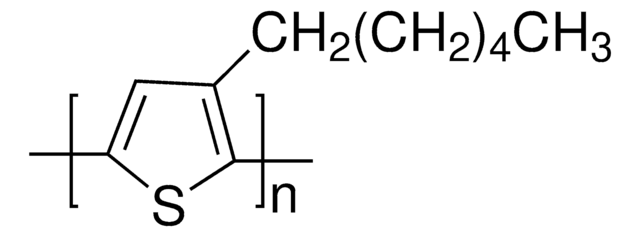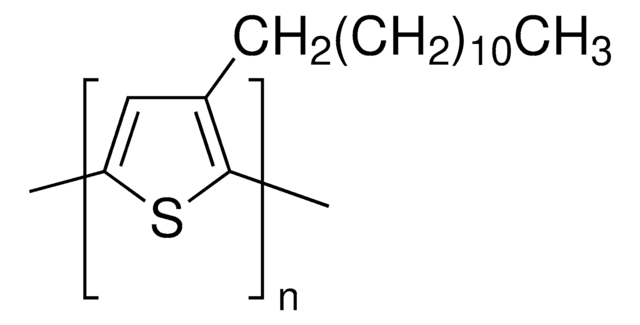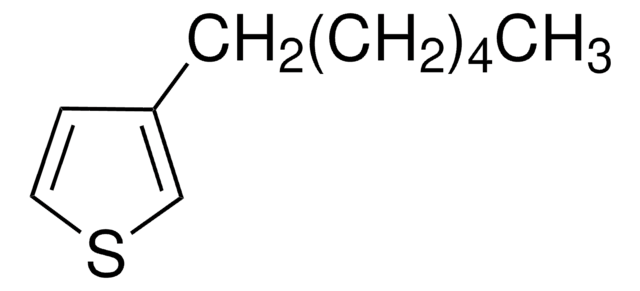682799
P3OT
regioregular, electronic grade, 99.995% trace metals basis, average Mn ~25,000
Synonyme(s) :
Poly(3-octylthiophene-2,5-diyl)
About This Item
Matériaux
black
Qualité
electronic grade
Description
Band gap: 1.7 eV
Pureté
99.995% trace metals basis
Forme
solid
Poids mol.
average Mn ~25,000
Pf
198-211 °C
Énergie orbitale
HOMO -5.25 eV
LUMO -3.55 eV
Performance des dispositifs OPV
ITO/PEDOT:PSS/P3OT:PC61BM (1:2)/LiF/Al
Propriétés du semi-conducteur
P-type (mobility=10−4 - 10−1 cm2/V·s)
Description générale
Application
Rechargeable battery electrodes, electrochromic devices, chemical and optical sensors, light-emitting diodes, microelectrical amplifiers, field-effect transistors and non-linear optical materials.
Used in organic field-effect transistors and in polymer-based solar cells.
Caractéristiques et avantages
Code de la classe de stockage
11 - Combustible Solids
Classe de danger pour l'eau (WGK)
WGK 3
Point d'éclair (°F)
Not applicable
Point d'éclair (°C)
Not applicable
Équipement de protection individuelle
Eyeshields, Gloves, type N95 (US)
Certificats d'analyse (COA)
Recherchez un Certificats d'analyse (COA) en saisissant le numéro de lot du produit. Les numéros de lot figurent sur l'étiquette du produit après les mots "Lot" ou "Batch".
Déjà en possession de ce produit ?
Retrouvez la documentation relative aux produits que vous avez récemment achetés dans la Bibliothèque de documents.
Les clients ont également consulté
Articles
We are pleased to offer these conjugated polymer semiconductors: p- and n-type Polymer Semiconductors.
Polymer-based Materials for Printed Electronics: Enabling High Efficiency Solar Power and Lighting
The application of conducting polymers at the interface with biology is an exciting new trend in organic electronics research.
Optoelectronic Devices Based on Diketopyrrolopyrrole (DPP)-containing Conjugated Small Molecules
Notre équipe de scientifiques dispose d'une expérience dans tous les secteurs de la recherche, notamment en sciences de la vie, science des matériaux, synthèse chimique, chromatographie, analyse et dans de nombreux autres domaines..
Contacter notre Service technique

